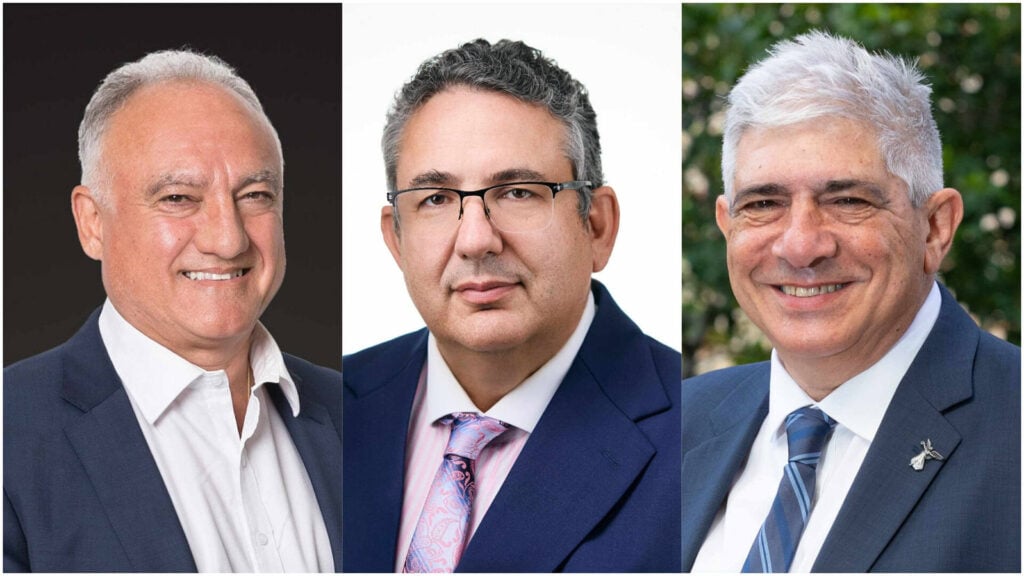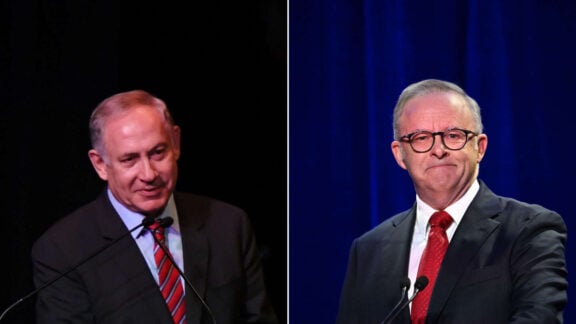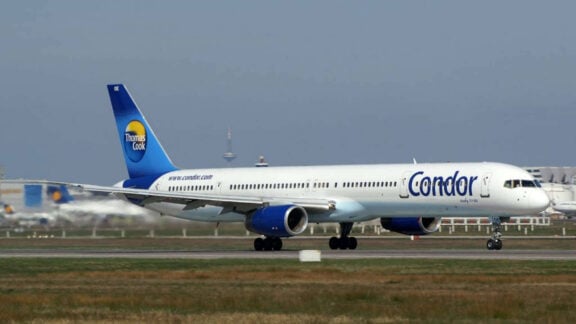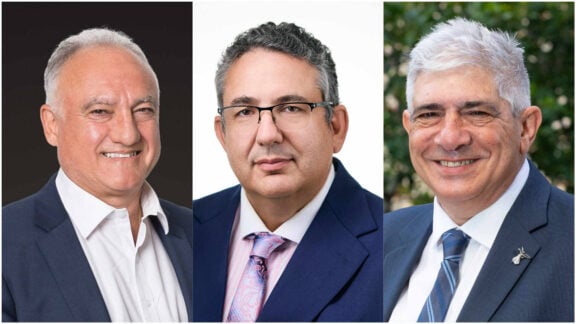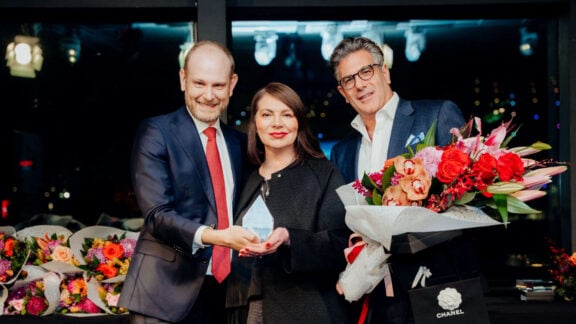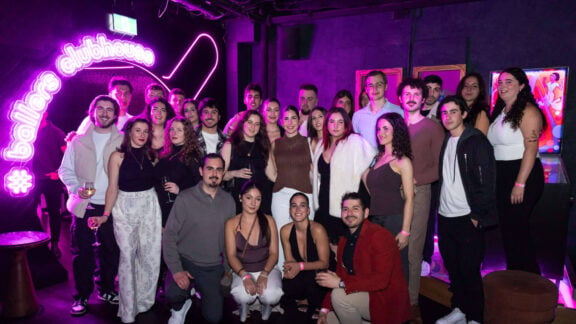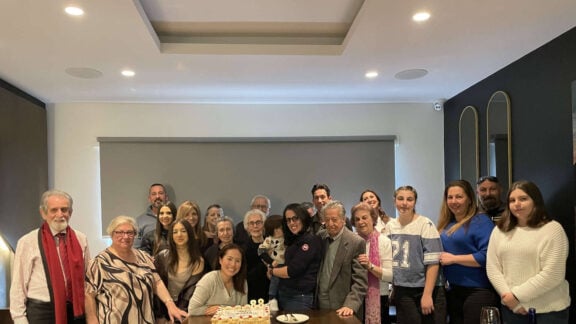The Cyprus Chamber of Commerce and Industry (CCCI) and the Cyprus Chamber of Commerce and Industry in Australia have signed a landmark Memorandum of Understanding (MoU), paving the way for deeper trade, investment, and innovation links between the two countries.
Speaking to Neos Kosmos, George Georgiou, co-founder and CEO of the CCCI in Australia, and his close associate James Demetriou AM, explained the significance of the agreement and how it can open new opportunities for the Cypriot diaspora.
The announcement comes ahead of the first official initiative under the MoU — an innovation and technology event in Melbourne on 4 September, hosted in collaboration with Madgwicks Lawyers.
Keynote speaker will be Demetris Skourides, Chief Scientist of the Republic of Cyprus, who will outline Cyprus’ 2025 vision for research and technological development. The event will also feature Andrea Michaels, South Australia’s state minister of Cypriot descent, and Antonis Sammoutis, Cyprus’ High Commissioner to Australia.
A formal commitment after years of volunteer work
Georgiou, who has decades of experience working with the Chamber in Nicosia, said the agreement formalises years of work that had relied on personal networks.
“Through the memorandum of understanding we confirmed our commitment to promote each other’s country to business and government leaders, to facilitate collaboration and shared projects,” he said.
But he stressed that until now, efforts in Australia had been driven largely by a handful of volunteers. “Our Chamber in Australia is a voluntary organisation. Too often it has been left to a few of us. My hope is that this agreement raises awareness and brings new members to the Chamber here, especially in Melbourne where we have a strong Greek Cypriot community.”
Shared ground and timing
For Georgiou, Cyprus and Australia share natural points of connection — both former British colonies with similar legal, financial and administrative systems.
“Cyprus and Australia were both British colonies. We share legal, accounting and financial systems, even something as simple as driving on the same side of the road,” he noted.
With Cyprus set to assume the Presidency of the European Union next year, Georgiou said the timing is ideal to highlight the island’s role in the Mediterranean and within Europe.
Diaspora as a bridge
Demetriou emphasised the importance of the diaspora in building new pathways.
“We have many highly successful Greek Cypriots in Australia, with international experience. Their knowledge can add weight to Cyprus’ efforts to expand trade and investment,” he said. “Cyprus can also serve as a base for Australian companies looking to enter the European market.”
Key areas of collaboration
Both men pointed to professional synergies in finance, law and accounting, as well as Cyprus’ strategic pivot toward R&D and innovation.
“Cyprus is eager to develop biotechnology, medical technology, agri-technology. Australia has real expertise here. That’s why the visit of Chief Scientist Demetris Skourides is so important — we’ll be introducing him to our contacts at universities and government departments,” Georgiou said.
Demetriou added that Australia’s universities and research institutions could play a critical role in boosting Cyprus’ capacity in agrifood, wildfire management, AI, sport, and medical technology.
Challenges and next steps
Despite the optimism, Georgiou acknowledged significant challenges. He pointed to the limited resources of the Cypriot High Commission in Canberra and the absence of consular services in Melbourne, home to more than 80,000 Cypriots.
“Processes like applying for a Cypriot passport can take up to a year. With better representation and use of technology, it could be so much easier,” he said, adding that establishing a Cypriot Consulate in Melbourne should be a priority.
He also proposed sister-city relationships between Limassol or Nicosia and Melbourne or Sydney as a way to strengthen ties.
Demetriou highlighted the need to engage the younger generation of the diaspora. “To date, there hasn’t been enough activity involving our youth and their peers in Cyprus. I took my son to the Diaspora Forum, and he saw how Cyprus is now actively seeking global input. The first generation has led, but the next generation must carry this forward.”
Innovation as the connecting thread
Both men believe the word that defines this new chapter is innovation.
“Australia has always punched above its weight,” Demetriou said. “Our universities rank among the world’s top, our research is strong. If Cyprus can draw on that, it will build capabilities that match its ambitions.”
Georgiou agreed: “The Chamber is the vehicle to achieve these goals. When I go to Nicosia, government officials, the Chamber of Commerce, ‘Invest Cyprus’ — a government body — take me seriously because I represent something real: I am one of the founders and the current president of the Cypriot Chamber of Commerce in Australia.”
But he stressed that sustained support is essential. “We cannot fund this out of our own pockets forever. If the Cyprus Government wishes to take this initiative forward, it should consider providing tangible support — whether through funding or by establishing an office in Melbourne. Volunteers can only go so far.”
For both Georgiou and Demetriou, the signing of the agreement is just the beginning. The real success will be measured by the partnerships and opportunities it delivers — for Cyprus, for Australia, and for the diaspora that connects them.
